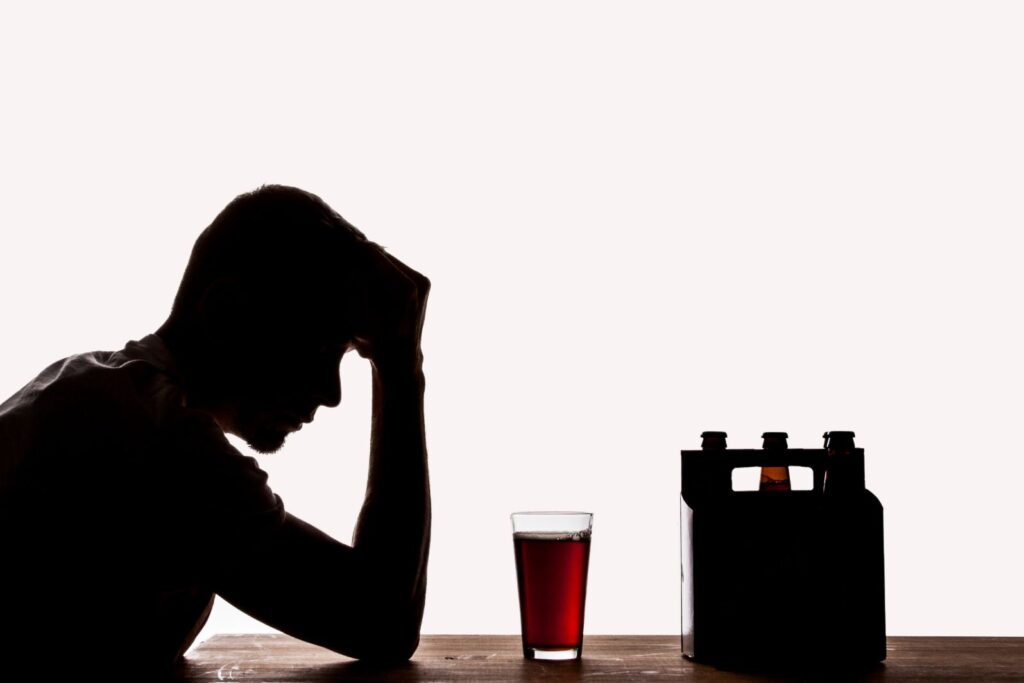If you are beginning to think that you are a problem drinker, you are not alone. Most of the adult population struggles with alcoholism, with that number being doubled if you include family members.
What is the difference between being a problem drinker vs alcoholic? Are there any signs that can help you realize your drinking affects your life?
We will answer all these questions and more so you can make an informed decision regarding you and your drinking habits.
Hopefully, this guide can help you find a solution to your excessive drinking, or at the very least, help you realize it’s not just a phase you are going through.
Let’s begin!
Table of Contents
Signs of a Problem Drinker vs an Alcoholic
Drink problems and alcoholics are not the same. Problem drinkers’ behavior is outside of social norms and often leads to embarrassment. In contrast, alcoholics are physiologically dependent on alcohol and need it to function.
Signs of a problem drinker can include:
- often drinking above the legal limit
- making excuses to drink
- a lack of control around alcohol
These drinkers may not be dependent on alcohol; they just alcohol abuse it without any intention of stopping. Someone classified as having an alcohol problem is defined by:
- showing physical signs of withdrawal from alcohol
- a compulsion to drink
- attempts to quit that have not been successful
They would have a difficult time functioning normally without alcohol in their system. The defining line between the two is generally drawn around physical dependency.
Alcoholics are those who have an actual physical need for alcohol, and problem drinkers not having developed an actual physical dependence yet.
Causes and Effects of Problem Drinking and Alcoholism
Problem drinking and alcoholism is a serious issue that affects millions of people every year. The problem drinker can be costly to society as a whole in terms of health care and criminal justice costs.
Some people dismiss problem drinking as a less serious issue than alcoholism, but this can be a dangerous mistake to make. In some ways, problem drinking is a more difficult issue to deal with due to the lack of consistency with problem drinking behaviors.
When do you recognize problem drinking, and when does it cross over into alcoholism? Drawing the line between problem drinkers and alcoholics is not always clear and can be difficult to distinguish.
The causes and effects of problem drinking and alcoholism pertain to both of these titles as they involve not only physical aspects but mental, social, and economic implications as well.
To effectively treat both problem drinking and alcoholism. It is important to identify the line when it comes to understanding how far each has progressed and how to plan accordingly.
Treatment Available for Problem Drinkers and Alcoholics
It is important to understand the difference so that the right treatment is available. Problem drinkers can often recognize that their drinking is problematic. As it has a direct negative effect on their life, and they are usually willing to address the issue.
This type of treatment usually involves talking therapies, such as Cognitive Behavioral Therapy. To address the underlying causes and help the person control their drinking.
On the other hand, an alcoholic will often not recognize their problem or refuse to accept help, so a different type of treatment is used. This type of alcohol treatment is typically longer-term and focused on changing behaviors and providing support.
It often includes counseling, 12-step programs, or residential treatment. Whatever kind of drinking problem a person has, there is treatment available to help them manage it and reach their goals.
Discover more on alcohol recovery to help a person get the help they need to make positive changes in their life and change their unhealthy drinking behavior.
Challenges of Identifying Problem Drinking vs Alcoholism
Problem drinking and alcoholism are challenging to differentiate, especially in the early stages. People often conflate varying levels of alcohol abuse with one another or deny the presence of a problem entirely.
Generally speaking, problem drinking can be classified as binge drinking or consuming large amounts of alcohol relatively infrequently. Alcoholism, on the other hand, refers to uncontrollable drinking and physical alcohol dependence.
Problem drinkers may only drink heavily on certain days of the week or the weekends. But often recognize their drinking is problematic and may want to adjust their behavior.
Alcoholics, however, would experience myriad physical, mental, and emotional consequences in their everyday lives. And may be unable to limit their intake despite multiple attempts.
They may hide their drinking and seek out alcohol at all costs, regardless of family and work obligations. The risks associated with both are significant and life-altering. So it is important to try and identify problem drinking versus alcoholism as early as possible.
The biggest challenge of identifying problem drinking and alcoholism is that the line between them is often thin, and diagnosis is often difficult. As a result, treatment and prevention strategies need to be tailored to the individual. Ensure proper care is received, and health risks are reduced.
Defining the Difference Between a Problem Drinker Vs Alcoholic
Drawing the line between a problem drinker vs alcoholic is not always easy. And a person often must come to the realization of their actions and the consequences that accompany them.
Ultimately, it is up to an individual to seek help and support if they realize their drinking is causing them harm. If you need help, seek it, and do not be afraid to reach out. Don’t wait to decide to get help—the sooner, the better!
Did you find this article helpful? Check out the rest of our blogs!

